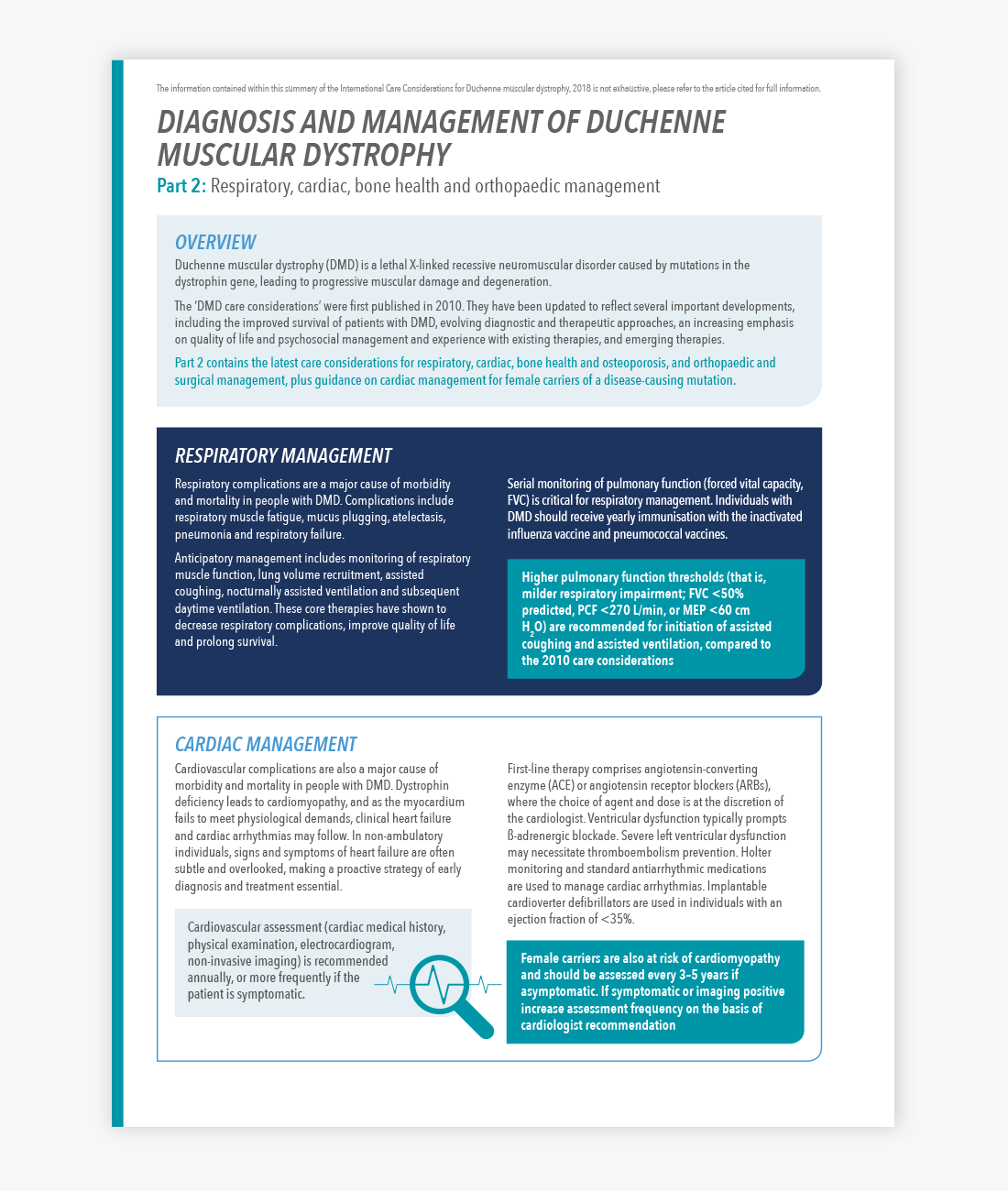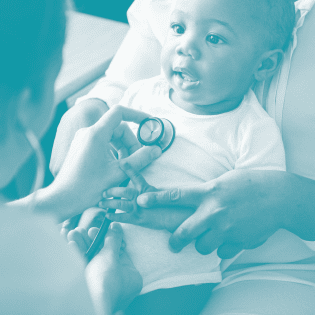The benefits of genetic counselling for DMD
Genetic counselling for DMD offers many benefits for families diagnosed and living with DMD.1–3
Five reasons to refer DMD families to a genetic counsellor:1–3
- They provide education about DMD and its therapeutic options
- They can coordinate diagnostic genetic testing
- They can establish who is at risk of being a carrier and organise carrier genetic testing
- They can discuss family planning options
- They provide emotional counselling
Expert insights
Want to find out more about obtaining an accurate DMD diagnosis?
Learn more from our DMD expertsCarrier screening for DMD
Family members of an individual with DMD should receive genetic counselling to establish who is at risk of being a carrier.4
Carrier genetic testing should be performed in female relatives of a boy or man who has been genetically confirmed to have DMD.4
Early detection means that women who are carrying the DMD gene mutation can:
- Be offered genetic counselling, which can inform them about the risks of transmitting the mutated allele in future pregnancies5
- Have the option of prenatal genetic testing4,5
- Be made aware of alternative reproductive options, such as the use of donor eggs or human assisted reproduction with preimplantation genetic diagnosis5
- Undergo regular surveillance for cardiomyopathy from early adulthood4,6
- Receive early cardiac treatment if heart involvement is detected7,8
Download the summary: International care considerations for DMD
Genetic counselling is also recommended in the International Care Considerations for DMD. Download our summary to find out more.

An early and accurate diagnosis ensures patients receive early access to treatment. Find out more about DMD treatment.
Learn More

Duchenne muscular dystrophy treatment
The best outcomes for DMD patients are likely to result from the early application of DMD treatments.9–11


Duchenne muscular dystrophy expert insights
Find out more about DMD, and learn from leading clinicians, in our Expert Insights section.


Duchenne muscular dystrophy key publications
Read some of the latest scientific and clinical research on DMD.


E-learning tool for health care professionals
Access to e-Learning modules for healthcare professionals to help you understand your role in identifying and managing Duchenne muscular dystrophy

The content on this page has been reviewed by Dr Christian Werner, Executive Director, Global Medical Affairs
Global Duchenne Muscular Dystrophy Lead, PTC Therapeutics.
This page has been through comprehensive review for informational and educational purposes. Find out more about our content review process.
References
- Helderman-van den Enden AT, et al. Clin Genet. 2011;79:236–242.
- Institute of Medicine (US) Committee on Assessing Genetic Risks; Andrews LB, et al. editors. Assessing Genetic Risks: Implications for Health and Social Policy. Washington (DC): National Academies Press (US); 1994. 4, Issues in Genetic Counseling. Available at: https://www.ncbi.nlm.nih.gov/books/NBK236049/ [Accessed October 2022].
- Duchenne Connect. Genetic Counseling. Available at: https://www.duchenneconnect.org/genetic-counseling.html [Accessed November 2022].
- Birnkrant DJ, et al. Lancet Neurol. 2018;17:251–267.
- Bianco B, et al. Einstein (Sao Paulo). 2017;15:489–491.
- Birnkrant DJ, et al. Lancet Neurol. 2018;17:347–361.
- Mavrogeni S, et al. World J Cardiol. 2015;7:410–414.
- Adachi K, et al. J Neurol Sci. 2018;386:74–80.
- Aartsma-Rus A et al. J Med Genet. 2016;53:145–51.
- van Ruiten HJ, et al. Arch Dis Child. 2014;99:1074–1077.
- Lurio JG, et al. Am Fam Physician. 2015;91:38–44.
© 2022 PTC Therapeutics.
GL-DMD-0712 | October 2023